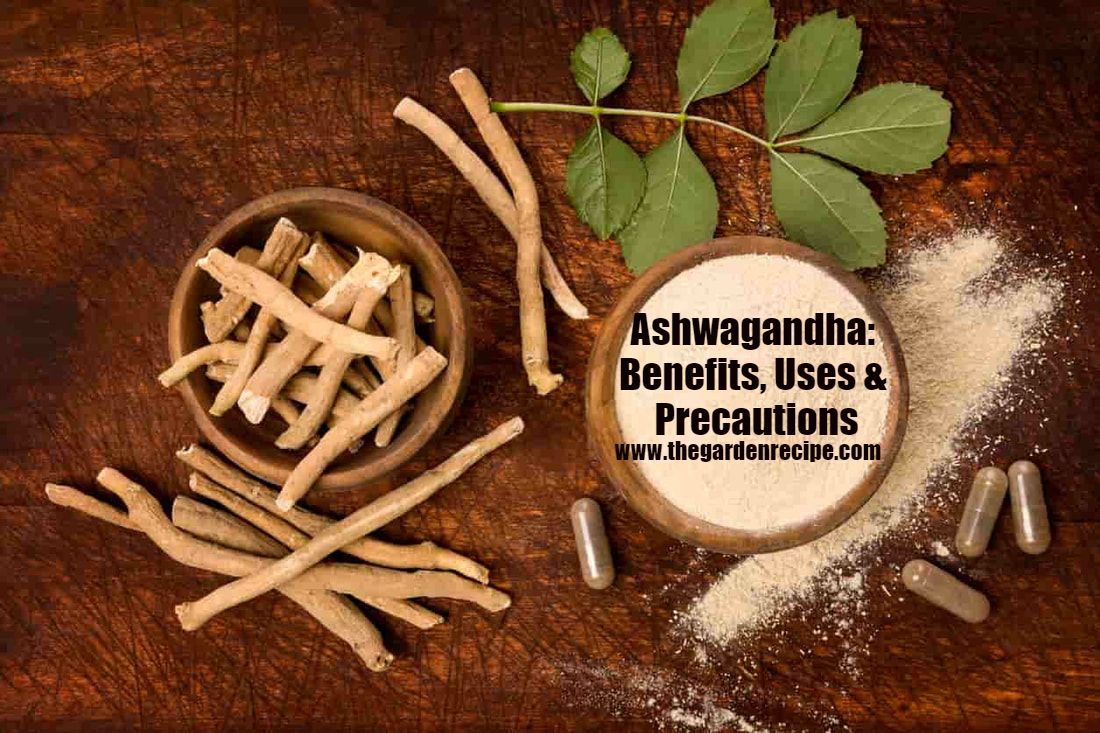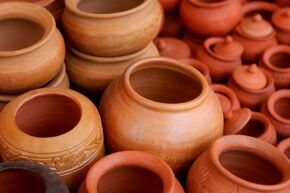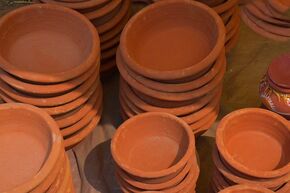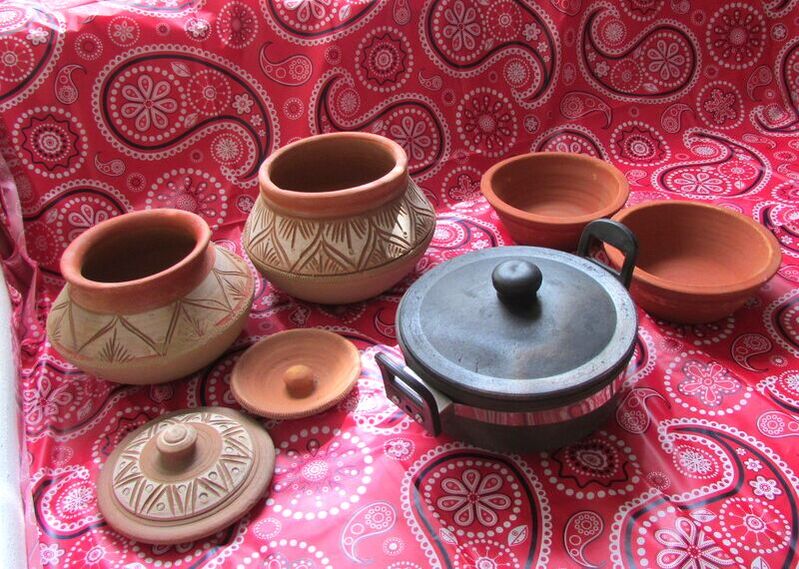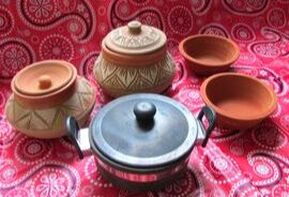|
Ashwagandha has taken the world by storm - as an adaptogenic herb, it offers a lot of benefits. However, it is not for everyone. Find out in this article. Ashwagandha in Ayurveda -
Ashwagandha (Withania Somnifera) has been used for centuries in Ayurveda as part of traditional medicine for many ailments like insomnia, low energy, etc. which we will discuss more in this article. In Ayurveda, Ashwagandha is one of the most important herbs. Ashwagandha is revered for its restorative properties and its ability to act as an adaptogen in the individual's body - however, Ashwagandha is NOT for everyone! (also discussed more in detail in this article). In Ayurveda, Ashwagandha is considered as a rasayana or as a rejuvenative herb since it has the ability to nourish depleted cells and energy in the body. Ashwagandha is also called the "Indian ginseng" and "Indian Winter Cherry." In Sanskrit, "ashwa" means horse and "gandga" means smell - thus translating to "the smell and strength of a horse." When the herb is grounded, it smells like a horse and thus the name. Ashwagandha is also known as "Satvikk Kapha Rasayana" One of the reasons Ashwagandha is called as somnifera is because of it's sleep inducing qualities. Somnifera in Latin means "sleep inducing." Ashwagandha is a powerful nervine tonic and as an adaptogen, it is revered for its stress reducing and balancing properties. Ashwagandha is native to India, Pakistan, Sri Lanka and Africa. Nutrients in Ashwagandha - Ashwagandha root is the part most used for therapeutic purposes. The root is dried first and then grounded into fine powder and sold. Ashwagandha is rich in saponins, alkaloids, steroidal lactones (withanolides and withaferin), sitoindosides and acyl steryl glucosides (both compounds that make ashwagandha a perfect anti-stress herb!). What are the benefits of Ashwagandha? Ashwagandha for Cancer - Ashwagandha has been shown to be effective in preventing or healing cancers of breast, ovarian, colon, prostate, lung and brain. Ashwagandha has been studied and evaluated in some research studies and it has proven that it can selectively target tumor cells and kill them. Also, for cancer patients, ashwagandha can be a great support for the immune system during chemotherapy and radiation treatments. Many cancer patients (due to the drugs and chemo) don't get good sleep so that is also where ashwagandha can come to good support. If good sleep is the platform upon which health is built, then ashwagandha is a must for cancer patients. Ashwagandha for Insomnia - In a research trial, it was found that ashwagandha at a dose of 300 mg, twice daily helped promote restful sleep in people with insomnia and anxiety. Moreover, it improved the sleep quality and sleep onset latency. Ashwagandha for Pain & Inflammation - Ashwagandha has analgesic properties so it is very useful for painful conditions like arthritis and inflammation - this is because of prostaglandin in ashwagandha that act as pain mediators. Ashwagandha also reduces inflammatory markers like IL-10 (interleukin 10) and also targets inflammatry pathways like Nrf2 (nuclear factor erythroid factor 2-related factor 2). Ashwagandha Helps in Boosting Testosterone Levels in Men - Ashwagandha can help boost testosterone levels in men and enhance fertility. This is, in fact, one of the reasons why it is considered a 'herb for men.' Ashwagandha is useful in helping men with sperm motility, sperm concentration, better sperm count, fatigue and semen volume. Ashwagandha Helps Improve Sexual Health in Women - Ashwagandha is excellent for women who have poor sexual function. Ashwagandha can help improve lubrication, arousal, orgasm and overall satisfaction in bed. Ashwagandha as an Adaptogen - Ashwagandha is used as an adaptogen - a substance like a herb that helps the body cope with stress, anxiety and mood fluctuations. Because ashwagandha controls stress mediators like cortisol and calms the HPA axis (hypothalamic-pituitory-adrenal axis), it can be really beneficial for those who are going through stressful, challenging events in their life and need that extra support in the form of an excellent adaptogen called ashwagandha! The dosage for this varies from individual to individual and per stressful conditions, but in general a dose between 250 mg to 600 mg was found helpful in a study - given daily over a 8-week period. Anxiety - For anxiety, ashwagandha was given for 60 days, 240 mg in extract form and it showed significant reduction in anxiety in the control group vs. the placebo group. Besides these, ashwagandha is also beneficial for these conditions - Athletic performance, attention/focus, bipolar disorder, blood sugar/diabetes, depression, energy, helps grey hair restore color, memory, muscle strength, schizoprenia, skin health, sexual health. What is the best way to take Ashwagandha? You can mix some ashwagandha in some warm turmeric milk and coconut oil and take it a few hours before bedtime to induce sleep and relaxation. Start with a low dose as you do not know how sleepy it will make you and make sure to take it when you are not going to drive or go out. Ashwagandha Ayurvedic Qualitites - Described as in Ayurveda - Rasayana (regenerative, restorative and rejuvinative tonic) Taste - Bitter, Sweet & Pungent (though the bitter part dominates) Potency - Warming (Hot Herb) Doshas - Pacifies Kappa & Vata, Increases Pitta Hormone Activity - Targets Testosterone When Taking Ashwagandha - 1. Make sure to add some (natural) sweetener as Ashwagandha is a bitter herb. 2. Take it in a warm beverage with some healthy fats like coconut oil or so. Ashwagandha is a fat soluble herb - a very important point that almost ALL Western literature/doctors/health blogs don't know and miss telling the readers!!!!! Because it has both the water soluble and fat soluble compounds, taking it with a beverage like plant-based milks will greatly enhance the absorption in your body. Plant-based milks have water in them so that will help with the absorption of water soluble compounds of ashwagandha while the healthy fats will help with the absorption of fat soluble compounds of the herb. 3. Never take any herb, including Ashwagandha beyond the recommended period and dose otherwise you will lose its efficacy in the long run. Even adaptogens like Ashwagandha need to be respected enough to be cycled - 3 months in and then a break or full stop. 4. Always buy organic herbs to avoid pesticides and over-burdening the liver and kidneys - same goes when buying ashwagandha. Who should NOT take Ashwagandha? 1. People (especially those with Vata dosha) who have weak, sluggish digestive fire (agni) should not take ashwagandha - unless taken how it is specified above. 2. People who have autoimmune conditions may want to consult with their holistic doctors as this herb upregulates the immune system - so be very careful! 3. If you have an overactive thyroid (hyperthyroid), as in Graves disease, then do NOT take ashwagandha as it might worsen your condition since ashwagandha might stimulate your thyroid too much. Instead, consult with your holistic/integrative doctor first. 4. If you are allergic to nightshade family (tomatoes, eggplant, potatoes, bell pepper, etc.), then do NOT take ashwagandha as it belongs to the nightshade family of plants. 5. Women who are pregnant or breastfeeding should not take ashwagandha. 6. Make sure to check with your doctor if you are on drugs, over-the-counter medicines or going through any medical procedures before taking ashwagandha. 7. If you experience any side-effects like nausea, vomiting, diarrhea, etc. then stop taking ashwagandha. 8. Men with hormone-sensitive cancers like prostate cancer should NOT take ashwagandha . Ref. (1). Ref. (2). Ref. (3). Ref. (4). Ref. (5) -Somyata
4 Comments
2/9/2022 04:03:49
I use to take awhile back
Reply
Somyata
2/9/2022 15:20:39
Thank you Cala! Even I take ashwagandha sometimes - not daily though. As you know, last yr was crazy hectic for me and to deal with it all, ashwagandha was one of the herbs I started on....Love this sacred herb!
Reply
Tanu
5/13/2022 10:58:33
Helllo
Reply
Somyata
5/13/2022 14:44:39
Hello - I do not know if you can take ashwagandha while breast feeding. It is best to consult with you doctor in that case. Good luck..:)
Reply
Leave a Reply. |
Quick Recipes for You Indian Cucumber Salad
Potato Curry in Coconut Milk
Clay Pot Series Videos Clay Pots Buying Guide in India
Bringing Clay Pots from India to US
My Beautiful Clay Pots REVEALED!
Which Clay Pot is Right for You?
Some Helpful Articles Ayurvedic Tips for Digestion
Buddhism: The Four Elements of Love
Buddhism: What Is Metta Meditation?
|
The Garden Recipe - Subscribe To The Newsletter HERE
HOME HEALTH SPIRITUALITY SEX RECIPES INGREDIENTS COACHING CONTACT REVIEWS TGP
DISCLAIMER TERMS & CONDITIONS PRIVACY POLICY
DISCLAIMER TERMS & CONDITIONS PRIVACY POLICY
Copyright ©2023 THE GARDEN RECIPE, LLC
All Rights Reserved
All Rights Reserved

